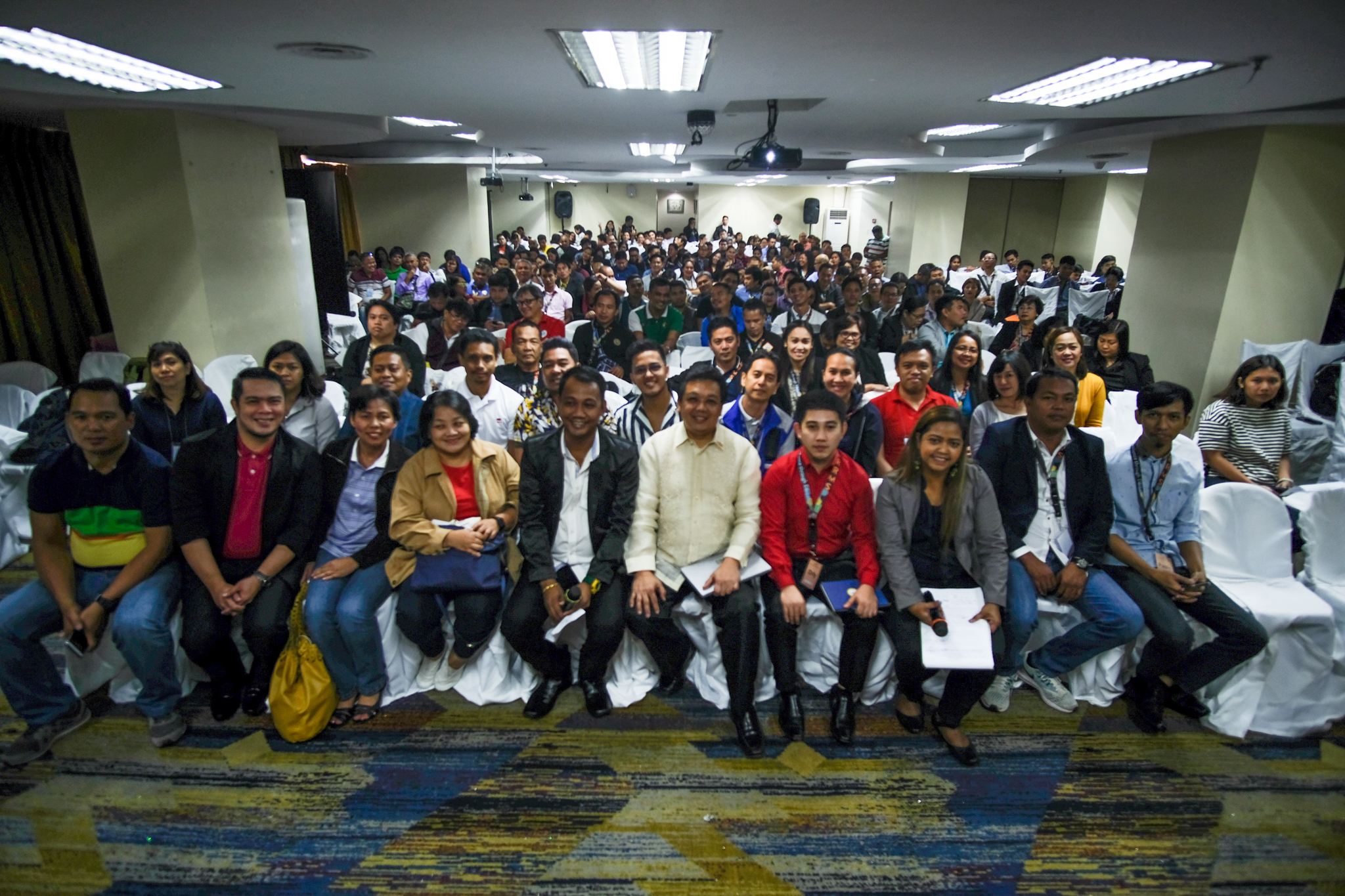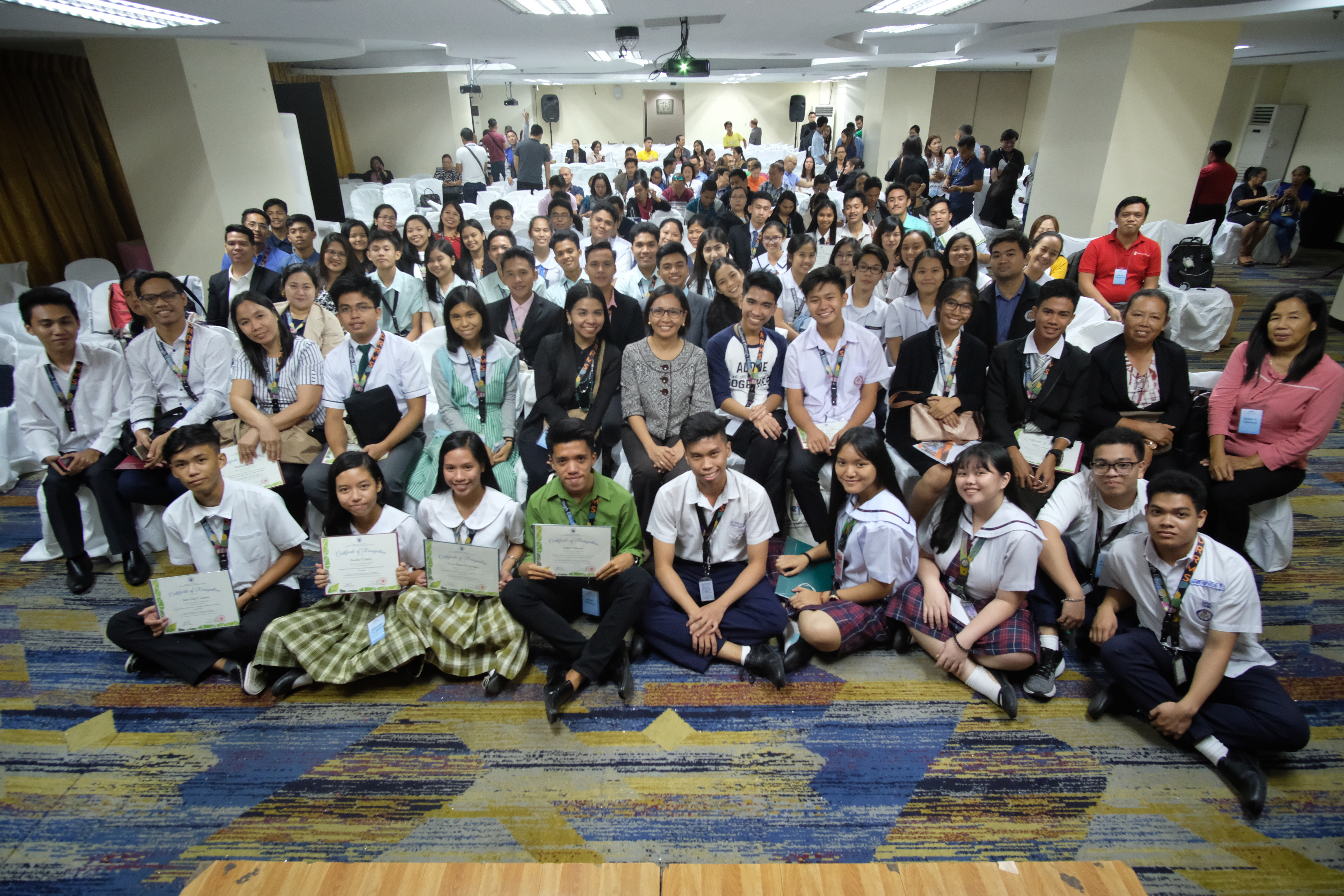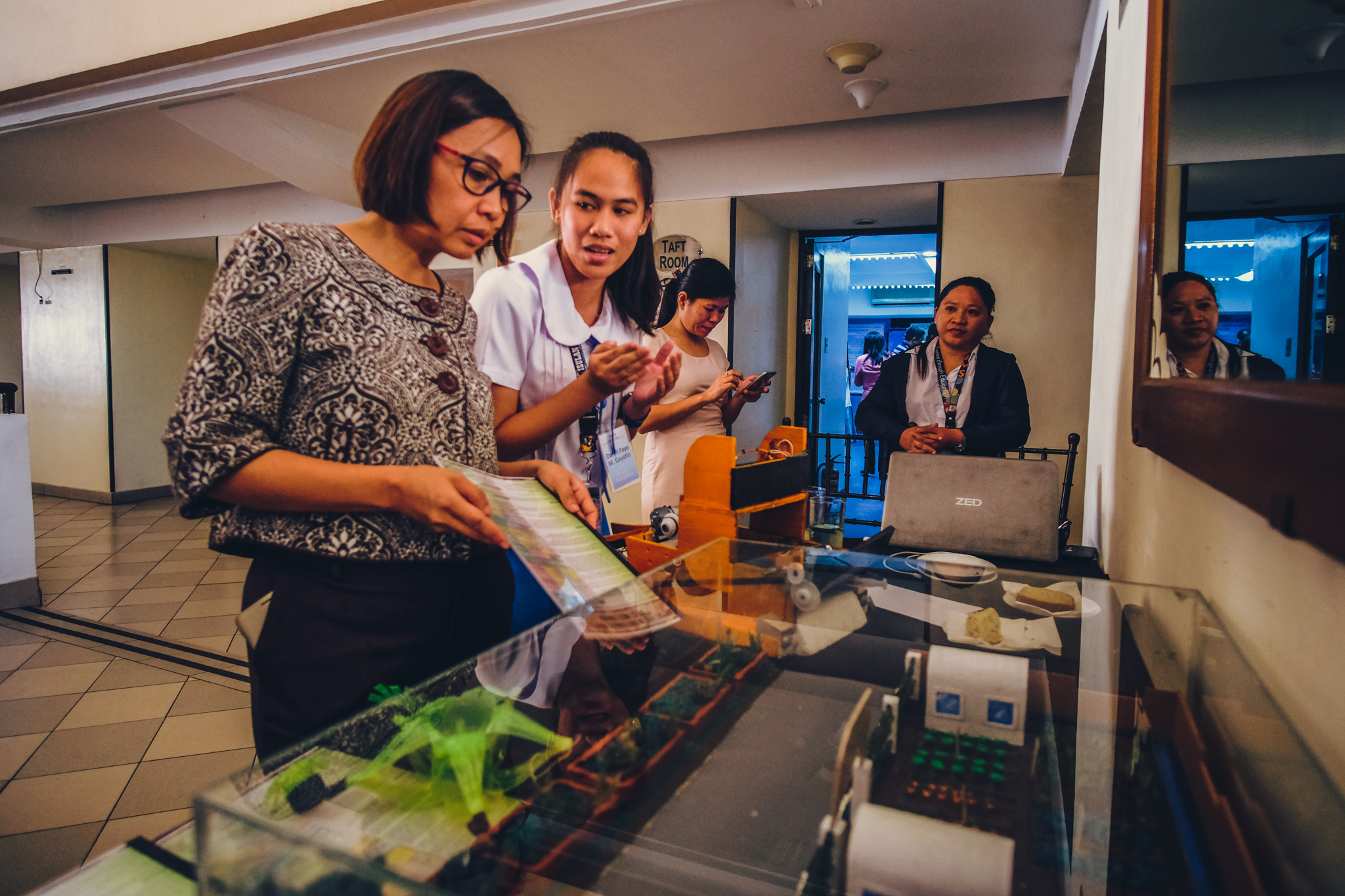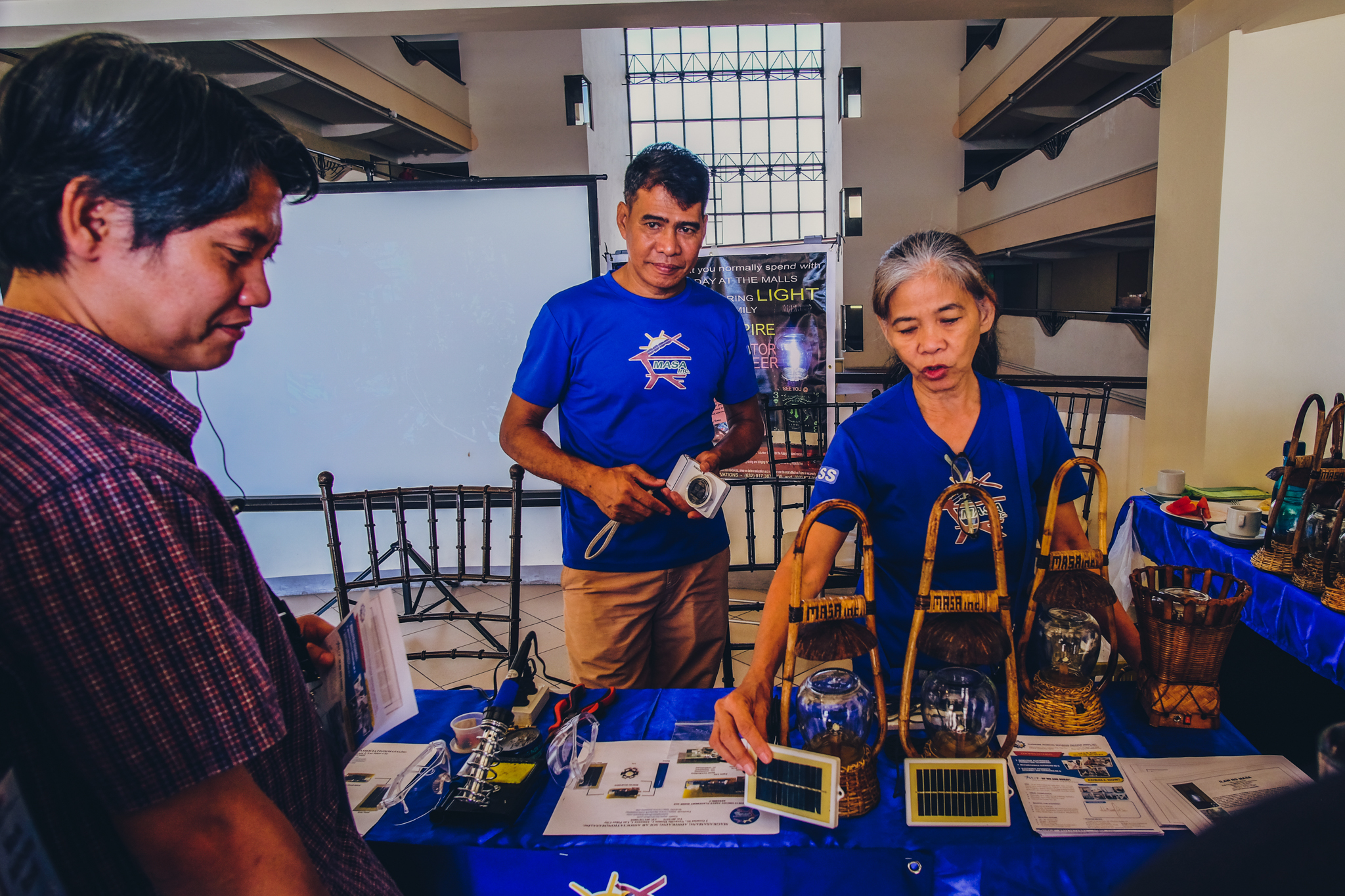PASAY CITY, December 21, 2019 – To increase stakeholders’ awareness on the impacts of climate change to children and the youth, the Department of Education (DepEd), through its Disaster Risk Reduction and Management Service (DRRMS), hosted the 2nd National Climate Change Conference (NCCC) last November 19 at the Atrium Hotel in Pasay City.
With the theme “Climate Action for Sustainable Development: Driving Change in Philippine Schools,” the NCCC aims to gather valuable insights and experiences from learners and teachers on how they lead their schools in becoming disaster resilient.
Resource speakers from the Institute of Climate and Sustainable Cities (ICSC), Climate Reality Project PH, and University of the Philippines-National College of Public Administration and Governance (UP-NCPAG) shared their knowledge and expertise on the global and local climate situation, and the importance of involving schools in climate action.
High school learners also showcased their innovations on climate change adaptation through an exhibit held in parallel with the presentation of 10 professional researches. Booths from partners including Project SHINE, Detox Pilipinas-Educational Resiliency and Ecobricks Philippines demonstrated practical approaches on climate change mitigation and adaptation, such as using solar lamps made of indigenous and recycled materials, repurposing plastic trash into usable furniture and building materials, and establishing an information network for early warning system.
DepEd-DRRMS Director Ronilda Co highlighted the importance of involving the learners and schools in increasing awareness, and creating a bigger impact on climate change adaptation and mitigation: “We aim to make this event bigger next year, showcase these student-led innovations to industries, and create a contest on solving related problems through innovative solutions.”
Carried out as part of the Climate Change Consciousness Week celebration, the 2nd NCCC was participated by around 400 learners, teachers, and partner non-government organizations and national government agencies.
END





